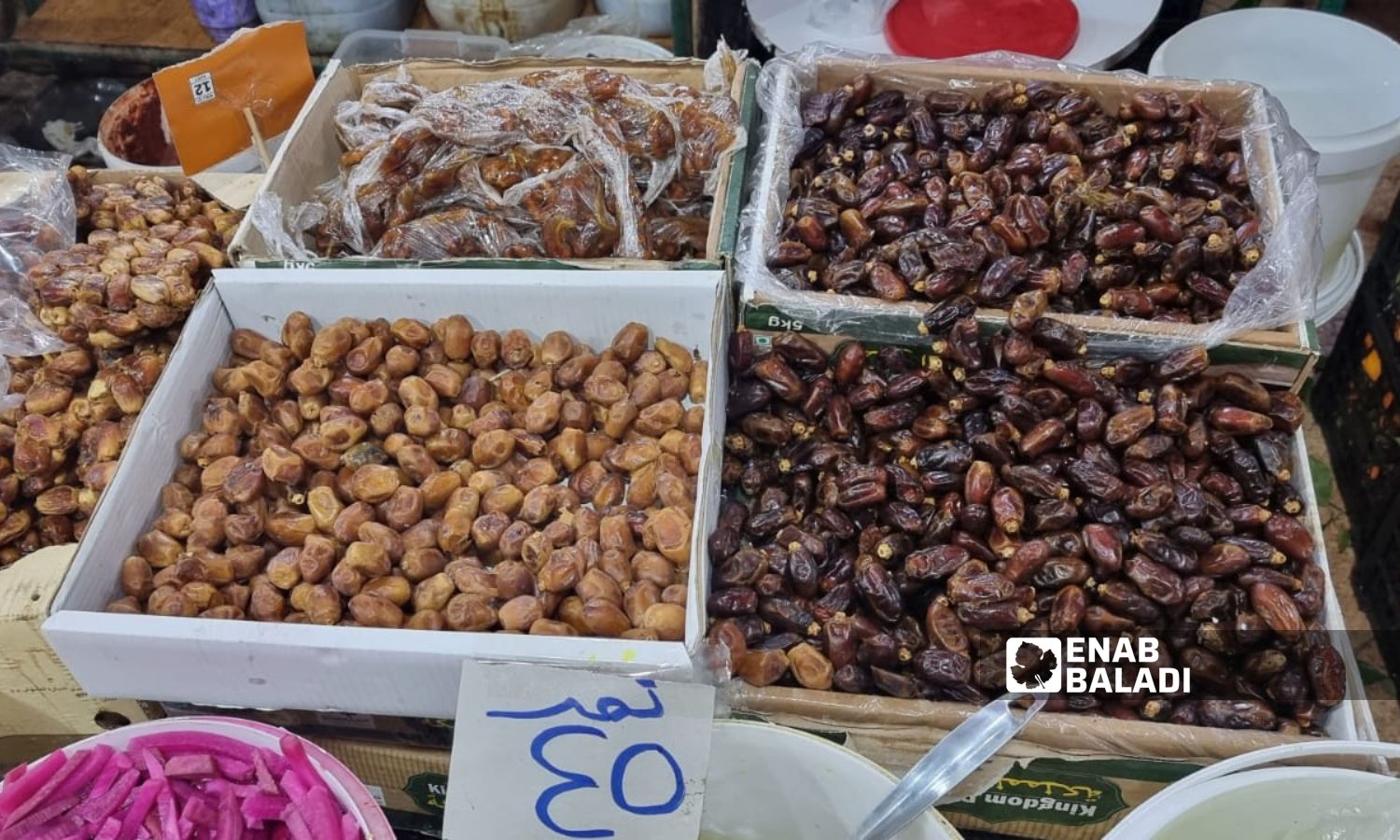



After 20 days into the month of Ramadan, dates are missing from Saleh’s table, as his deteriorating financial situation forced him to give up the dates he used to distribute several pieces of to each family member at iftar time, a tradition during the past years.
Saleh al-Sayegh (42 years old), a displaced person living in Idlib city, said he could not imagine the iftar table in Ramadan without dates, due to their high price compared to his income. He works in construction, and his daily wage does not exceed 100 Turkish lira at best (about three dollars).
He added to Enab Baladi that the decrease in workers’ wages has been matched by an increase in food prices, which has disrupted the family’s budget, leaving them struggling to economize costs and secure something to prepare for iftar as much as possible.
Al-Sayegh’s case is similar to 80% of the population in northwestern Syria, who work for a daily wage that reaches 100 Turkish lira at most, a paltry sum that is insufficient to prepare a simple iftar meal for a family of five.
Meanwhile, housewife Hadil al-Hassan (35 years old), residing in Idlib city, attributed the absence of dates from the iftar table to the decline in the distribution of relief baskets, which used to contain several varieties of food, including dates.
She told Enab Baladi that this year has been exceptional for her family of five, as they failed to receive any relief basket for their family, whereas in the past, she did not feel the burden of buying dates when they came as part of aid.
According to a tour by Enab Baladi’s correspondent in Idlib markets, the price of a kilogram of average quality dates is 50 Turkish lira, which is half the daily wage of a worker.
The price of a kilo of Saudi fresh dates (rutab) is 80 lira and the demand for it is very low, while the luxurious varieties such as Ami al-Hajj are 150 lira per kilo, Khudari is 170 lira, al-Rajhi is 375 lira, and the light-colored Suqa’i dates are 450 lira.
Mustafa Saghier, an employee at the Abu Aws Consumer Complex in Idlib, said to Enab Baladi that date sales have fallen by 50% this year compared to 2023, and customers have started purchasing in grams, which is unusual.
He mentioned that shop owners and food merchants have started offering promotions on dates, reducing the price per kilo to as low as 30 Turkish lira, to encourage buying and to sell their stock, noting that the luxurious varieties are stagnant and sold only to a limited number of customers “with high income,” as he put it.
As for Mohsen al-Saeedi, a food merchant in Idlib city, he said to Enab Baladi that the deterioration of living conditions has led to a decline in the date trade and a change in the residents’ buying habits, which includes purchasing half or a quarter kilogram of dates.
Dates are considered one of the most important food items present on the iftar table, and Syrians were accustomed to purchasing ample quantities, but the poor economic and living conditions led to a decline or even absence against a list of basic family needs.
In northwestern Syria, about 4.5 million people live, of whom 4.1 million need assistance, and 3.3 million suffer from food insecurity, 2.9 million of them are internally displaced, and two million live in camps, according to the United Nations, while local statistics indicate that the number is 5.5 to 6 million people.
if you think the article contain wrong information or you have additional details Send Correction